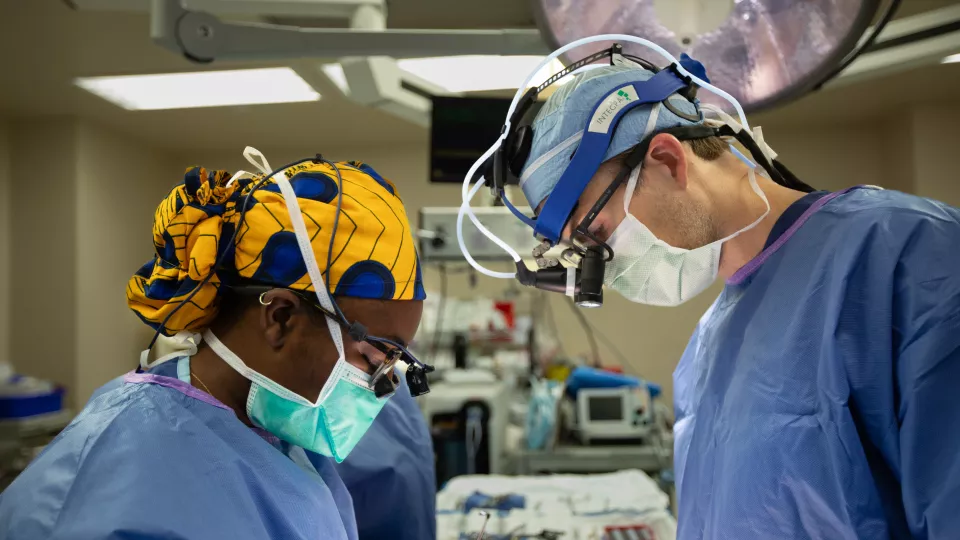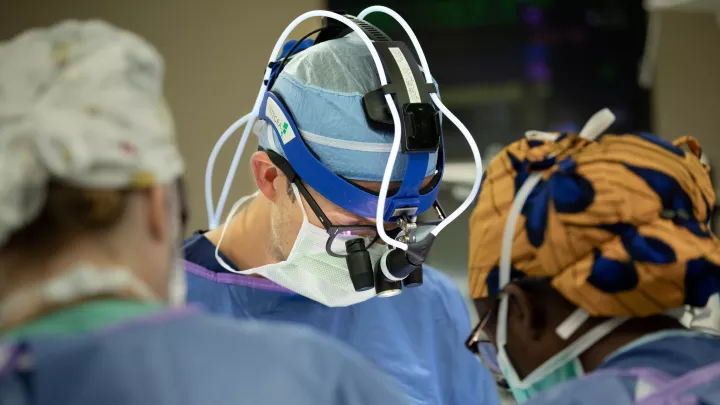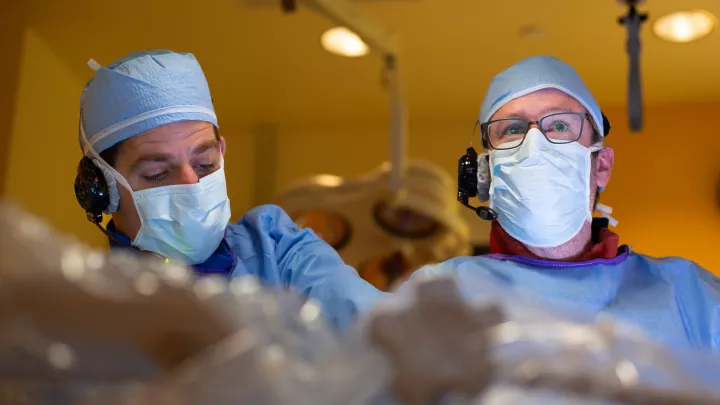
Novel Pulmonary Valve Aims to Reduce Invasive Surgeries for Kids
One of the longstanding challenges of pediatric pulmonary valve replacement is size and the ability to accommodate growth. Young children tend to quickly outgrow fixed size valves—leading to the need for multiple invasive surgeries throughout childhood.
Now, an investigational clinical trial at Children’s Hospital Los Angeles is testing a potential solution to this problem: a novel pulmonary valve that can be size-adjusted as a child grows.
The investigational device, called the Autus Size-Adjustable Valve, is designed to be balloon-expanded—via minimally invasive catheterization procedures—as a child grows. Last year, Children’s Hospital Los Angeles became the first center on the West Coast to offer this trial, which has now expanded to 10 sites around the country.

“Currently, pediatric valvular lesions are essentially a lifelong disease,” says Luke Wiggins, MD, a congenital cardiothoracic surgeon in the Heart Institute at CHLA and the site principal investigator for the study, which also involves Darren Berman, MD. “This new technology has the potential to revolutionize the way we approach and manage these patients.”
How the valve works
The Autus Valve, which is made by Autus Valve Technologies Inc., is a fully synthetic pulmonary valve that is surgically implanted in pediatric patients. Its design mimics the geometry of the human venous valve and features two leaflets.
Because the implant diameter is customizable, surgeons can implant the valve at the size appropriate for the child. The valve is designed to function across a wide range of diameters—from 12.7 to 22 millimeters.
That’s important because while some current pulmonary valves can be balloon-dilated in a catheterization lab to open stenotic leaflets as a child grows, this can often cause the valve to leak.
“One of the unique aspects of the Autus Valve is its two-leaflet design,” Dr. Wiggins explains. “That helps accentuate coaptation of the leaflets. So, when the valve is later balloon-dilated in the Cath lab, it can maintain its competency as a one-way valve.”
Children’s Hospital Los Angeles has been part of the study since its early feasibility phase. The valve is now being studied in a Food and Drug Administration pivotal trial.
The prospective, single-arm, multicenter study plans to enroll 50 patients, ages 18 months to 16 years, who require surgical pulmonary valve replacement. CHLA has so far implanted the device in three patients.
The next frontier
Although the Autus Valve aims to address the major issues of size and growth accommodation in pediatric pulmonary valve replacement, additional challenges remain.
“There is still a lot of opportunity for improvement in pulmonary valve prostheses,” Dr. Wiggins says. “For example, many existing prosthetic heart valves require anti-coagulation, which can cause side effects in children. And many of the biologic valves in use today break down quickly because of kids’ heightened immune responses.
“I see improving these pulmonary valves as the next frontier for our field,” he adds. “This trial is an exciting step toward that future, but there is more ground to cover.”
Dr. Wiggins notes that these trials are only possible because of the multidisciplinary care at the Heart Institute—the largest heart program for children in the Western United States.
“Although the surgical team places the valve, we work very closely with our pediatric cardiologists, our echocardiography and imaging specialists, and our interventional congenital cardiologists in the Catheterization Lab,” he says. “It’s that seamless teamwork that allows us to optimize care for these patients.”
CAUTION – The Autus Size-Adjustable Valve is an investigational device. Limited by Federal (United States) law to investigational use.


